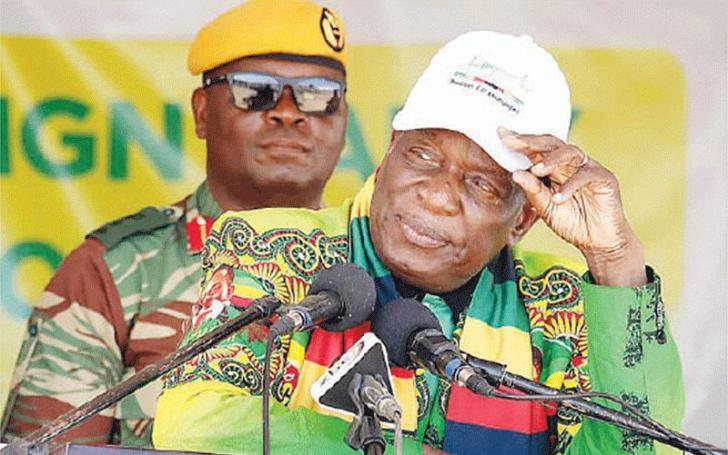News / National
Councilors gobble US$1m to meet Mnangagwa
30 Nov 2024 at 13:35hrs |
0 Views

In a controversial move that has sparked public outcry, Zimbabwe's cash-strapped local authorities spent an estimated US$1 million to fund the travel and allowances of nearly 2,600 councilors who attended a meeting with President Emmerson Mnangagwa in Harare on Tuesday.
Despite struggling to pay workers' salaries, many local authorities across the country sent their councilors to the capital for the meeting, which was organized by the Zimbabwe Local Government Association (ZILGA). The gathering was intended to thank Mnangagwa for launching the Blue Print Call to Action No Compromise to Service Delivery and to seek guidance from the Presidium.
The total cost for the trip included allowances for accommodation, meals, and supplementary expenses. Each councilor received US$90 for their bed, US$22.50 for breakfast, US$30 for lunch, US$37.30 for dinner, and US$30 in supplementary allowances per day. This brings the total daily allowance to US$209.80 per councilor.
With 2,595 councillors attending, including those from Harare, the total expenditure for the event reached approximately US$1,088 million. This figure excludes transportation costs, which are expected to add a significant amount to the overall expenditure.
ZILGA chairperson Aaron Golden Shamu confirmed the allowances but was unable to provide a precise total cost for the trip. Isaac Matsilele, Secretary General of the Association of Rural District Councils (ARDC), also confirmed the payments, but could not comment further on the total amount spent.
The indaba with President Mnangagwa, which began on Monday and concluded on Tuesday afternoon, was deemed an important event to address service delivery issues in local authorities. However, the significant expense of funding this meeting comes at a time when many local councils are struggling with severe financial difficulties, including the inability to pay salaries for municipal workers.
The Ministry of Local Government and Public Works also contributed to the event, with logistics handled by local authorities, while the Ministry assisted with venue costs. However, John Bhasera, the Permanent Secretary for the Ministry, could not be reached for comment by the time of publication.
Critics of the event have raised concerns about the use of public funds for such an expensive gathering, especially when local councils are facing mounting financial challenges. The ongoing struggle to pay salaries and meet basic service delivery needs has been exacerbated by a deteriorating economic situation in the country.
In addition to concerns about the costs of the meeting, there are growing worries about the ability of local authorities to meet their operational demands. Recently, the Ministry's Spatial Planning and Development Department Chief Director, Shingirirai Mushamba, revealed that local authorities are struggling to pay lead planners, further highlighting the financial crisis affecting the sector.
This extravagant expenditure comes as a stark reminder of the growing divide between Zimbabwe's political elites and ordinary citizens, with critics questioning whether such funds could have been better utilized to address the urgent needs of the country's ailing local governments.
Despite struggling to pay workers' salaries, many local authorities across the country sent their councilors to the capital for the meeting, which was organized by the Zimbabwe Local Government Association (ZILGA). The gathering was intended to thank Mnangagwa for launching the Blue Print Call to Action No Compromise to Service Delivery and to seek guidance from the Presidium.
The total cost for the trip included allowances for accommodation, meals, and supplementary expenses. Each councilor received US$90 for their bed, US$22.50 for breakfast, US$30 for lunch, US$37.30 for dinner, and US$30 in supplementary allowances per day. This brings the total daily allowance to US$209.80 per councilor.
With 2,595 councillors attending, including those from Harare, the total expenditure for the event reached approximately US$1,088 million. This figure excludes transportation costs, which are expected to add a significant amount to the overall expenditure.
ZILGA chairperson Aaron Golden Shamu confirmed the allowances but was unable to provide a precise total cost for the trip. Isaac Matsilele, Secretary General of the Association of Rural District Councils (ARDC), also confirmed the payments, but could not comment further on the total amount spent.
The Ministry of Local Government and Public Works also contributed to the event, with logistics handled by local authorities, while the Ministry assisted with venue costs. However, John Bhasera, the Permanent Secretary for the Ministry, could not be reached for comment by the time of publication.
Critics of the event have raised concerns about the use of public funds for such an expensive gathering, especially when local councils are facing mounting financial challenges. The ongoing struggle to pay salaries and meet basic service delivery needs has been exacerbated by a deteriorating economic situation in the country.
In addition to concerns about the costs of the meeting, there are growing worries about the ability of local authorities to meet their operational demands. Recently, the Ministry's Spatial Planning and Development Department Chief Director, Shingirirai Mushamba, revealed that local authorities are struggling to pay lead planners, further highlighting the financial crisis affecting the sector.
This extravagant expenditure comes as a stark reminder of the growing divide between Zimbabwe's political elites and ordinary citizens, with critics questioning whether such funds could have been better utilized to address the urgent needs of the country's ailing local governments.
Source - the mirror
Join the discussion
Loading comments…


































